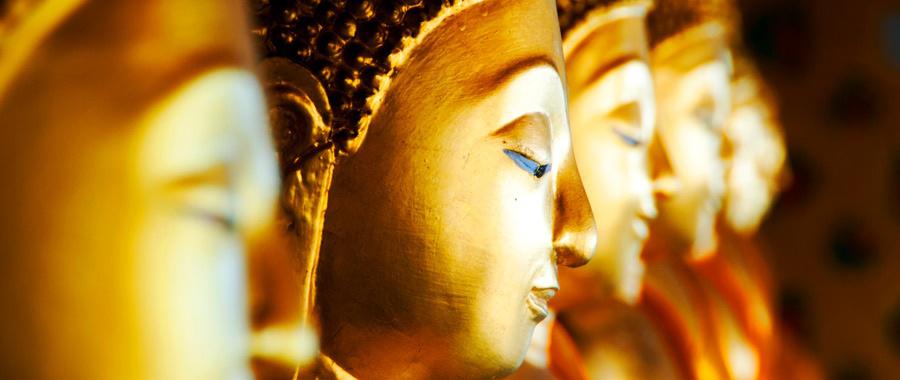The quest for understanding the divine has remained an insatiable pursuit throughout the annals of human history. The inquiry surrounding the existence of God — or the absence thereof — evokes profound contemplation. In this exploration, the Bahá’í teachings address a vital and intricate question: “One God, No God, Many Gods?” This multifaceted dialogue invites individuals to dissect their beliefs and reflects the inherent complexity of faith. It also acknowledges the vast spectrum of spiritual understanding that exists across different cultures and religions.
The Bahá’í perspective elucidates the oneness of God, positing that there is but a singular source of truth, yet it concurrently celebrates humanity’s diverse interpretations of that truth. In this framework, the notion of one God is not solely a monotheistic assertion; rather, it serves as a philosophical foundation upon which individuals may construct their understanding of existence.
At the crux of Bahá’í teachings lies the idea of progressive revelation. This concept asserts that divine guidance has been dispensed through a succession of Manifestations of God, including figures such as Moses, Jesus, Muhammad, and Bahá’u’lláh. Each of these individuals, revered as Prophets, conveyed essential truths compatible with the spiritual and social contexts of their respective eras. This gradual unfolding of spiritual truths engenders a richer understanding of the divine, illustrating how our perception of God evolves over time.
However, the question remains: how do we reconcile the notion of one God with the polytheistic interpretations prevalent in some religious traditions? The Bahá’í view imparts the understanding that disparate religious expressions arise due to human limitations in comprehending the infinite nature of God. Thus, while acknowledging the existence of many gods in various cultures, Bahá’ís argue that these representations are actually reflections of the same divine source, filtered through unique cultural lenses and historical contexts.
This perspective extends to the atheist viewpoint, which posits no divine presence whatsoever. Here, the Bahá’í teachings encourage an open dialogue, suggesting that even those who perceive no deity may still engage in the exploration of ethical and moral truths without theistic frameworks. Rational inquiry, combined with a spirit of humility, amplifies the search for truth. It allows individuals to transcend dogmatic divides and to appreciate the universality of human experience.
Within this expansive dialogue lies the challenge of understanding the nature of truth itself. Is it absolute, relativistic, or a synthesis of both? For Bahá’ís, truth is akin to a multifaceted gem, with each facet reflecting distinct dimensions of reality. This metaphor underscores the importance of embracing diverse perspectives while seeking unity among them.
Moreover, the focus on individual interpretation is paramount within Bahá’í teachings. Each believer is encouraged to undertake personal investigations and to rely on intuition, reason, and personal experience. This empowerment grants individuals the agency to explore their spiritual path, facilitating a deeper connection with the divine. In this way, the Bahá’í cycle of learning is not static; rather, it is a dynamic continuum of growth in understanding.
Another critical aspect of Bahá’í doctrine is the concept of unity in diversity. It posits that humanity, despite its myriad of beliefs and practices, constitutes one family. Each religion serves its respective followers in uplifting their spiritual consciousness, ultimately guiding them toward a singular divine purpose. Recognizing this interconnectedness prompts individuals to foster compassion and bridge gaps that divide sects, ideologies, and nations.
The implications of such beliefs are substantial. They encourage adherents to transcend tribalism and embrace a global mindset in their spiritual journey. Faith transforms from individualistic possession to communal enrichment, engendering collaborative efforts for peace and understanding. This communal focus heightens the awareness that the search for truth is not merely an individual undertaking; it encompasses collective responsibility.
As we delve deeper into Bahá’í teachings, one must also confront the paradox inherent in the question of divine existence. Acknowledging the divine’s enigmatic nature invites scrutiny; understanding that one’s absolute certainty may overshadow the complexity of faith. This duality invites thoughtful reflection on how conviction can coexist with uncertainty. It raises poignant considerations about the nature of spiritual struggles, inviting seekers to explore their reservations and confront established paradigms.
In conclusion, the Bahá’í exploration of “One God, No God, Many Gods” allows for a nuanced conversation about faith and spirituality. The perspectives offered compel individuals to address eternal questions about truth while nurturing appreciation for diverse interpretations. Engaging in this inquiry can foster a spirit of humility, openness, and unity, essential for collective progress on humanity’s shared path.
Ultimately, as undeniably complex as the divine may be, the ongoing dialogue surrounding these fundamental questions remains a crucial venture for individuals and communities alike. Whether one sees divinity in singularity, plurality, or absence, the pursuit itself is transformative. Embracing this journey with an open heart and discerning mind cultivates a richer understanding of truth and our place within the grand tapestry of existence.
